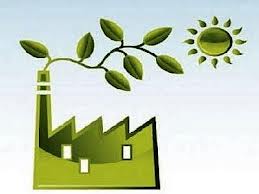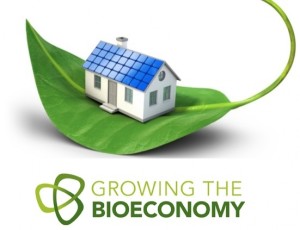Focus on intelligent use of resources and eco-friendly development increases in the EU
By 2025 the industry could generate 130 million new jobs
 World population increases and natural resources are progressively depleting. The economy does not grow and jobs continue to be lost. There are 2 real dramatic problems but what could they have in common? Perhaps a possible solution. The Romanian economist Nicholas Georgescu, who formulated the concept, defines it as bio-economics. In practice it is about an intelligent use of biological and renewable resources present in nature, which gears toward an ecologically and socially sustainable economy. Europe increasingly considers this possibility more carefully and Brussels discussed it today during a meeting organized by the Euro MP Vittorio Prodi.
World population increases and natural resources are progressively depleting. The economy does not grow and jobs continue to be lost. There are 2 real dramatic problems but what could they have in common? Perhaps a possible solution. The Romanian economist Nicholas Georgescu, who formulated the concept, defines it as bio-economics. In practice it is about an intelligent use of biological and renewable resources present in nature, which gears toward an ecologically and socially sustainable economy. Europe increasingly considers this possibility more carefully and Brussels discussed it today during a meeting organized by the Euro MP Vittorio Prodi.
“Bio-economy will grow and starting with research, but is not concerned only with science” began Patricia Reilly, a member of the Cabinet of the Commissioner for Research, Máire Geoghegan-Quinn, who is already involved in bio-economics. The European Commission recently instituted an observatory to evaluate progress and the impact of development of bio-economy in Europe, to monitor community, national and regional policy and to evaluate ongoing efforts in the research field and innovation in this sector. Reilly also recalled the base principles of the actions of the European strategy for a more ample use of renewable resources and for a sustainable growth: like investing in research and innovation, sustaining European competitiveness and the development of innovative markets in diverse sectors of bio-economics and the involvement of all stakeholders in a collaborative dialogue with political parties.
Now the value of the bio-economic sector in Europe is calculated at a total of 2,000 billion Euro generating more than 22 million jobs – however by 2025, the direct financing for research and strategy on bio-economics in the framework of the Horizon 2020 program could generate about 130,000 jobs and 45 billion Euro added-value.
“On one side bio-economy could be the answer to dependence on fossil resources and from the other side, in long-term perspective, could be the answer to food security, reduction on environmental impact, recycling waste, sustainable use of resources and growth in jobs available” explained Euro MP Paolo Bartolozzi (Epp) in a video message. “This is not just an academic discussion – added Giles Chichester (Ecr) as well – it deals with daily life and all people.”
There are some concrete examples that demonstrate that bio-economy is not just a theory. Daniele Ferrari, CEO of Versalis (ENI) was also present at the meeting. He built one of the most innovative industrial poles in the world for green chemistry in Porto Torres, Sardinia. This enterprise achieves chemical production at an environmentally low-impact, also creating the basis for a positive re-industrialization. It was not easy to reach this result in Italy, tells Ferrari: “Many meetings were necessary, every single government minister was involved. We needed about a year to do what in Singapore could have been done in 10 days. Besides that, concluded Ferrari, “we think ours is a replicable model”.
Letizia Pascale








![Una donna controlla le informazioni sul cibo specificate sulla confezione [foto: archivio]](https://www.eunews.it/wp-content/uploads/2014/12/Etichette-alimentari.jpg)
